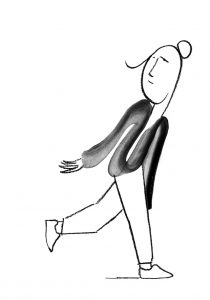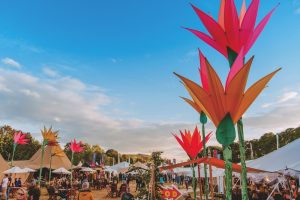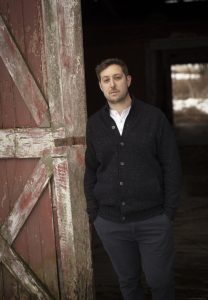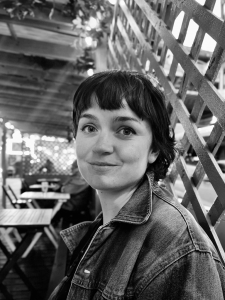Keith Ridgway’s long awaited book – A Shock – is a fragmented yet interconnected story of Londoners consumed by emotions and anxieties and narratives, or the lack thereof, that they cannot master. Here, we run an exclusive extract, with an author interview set to be released next week
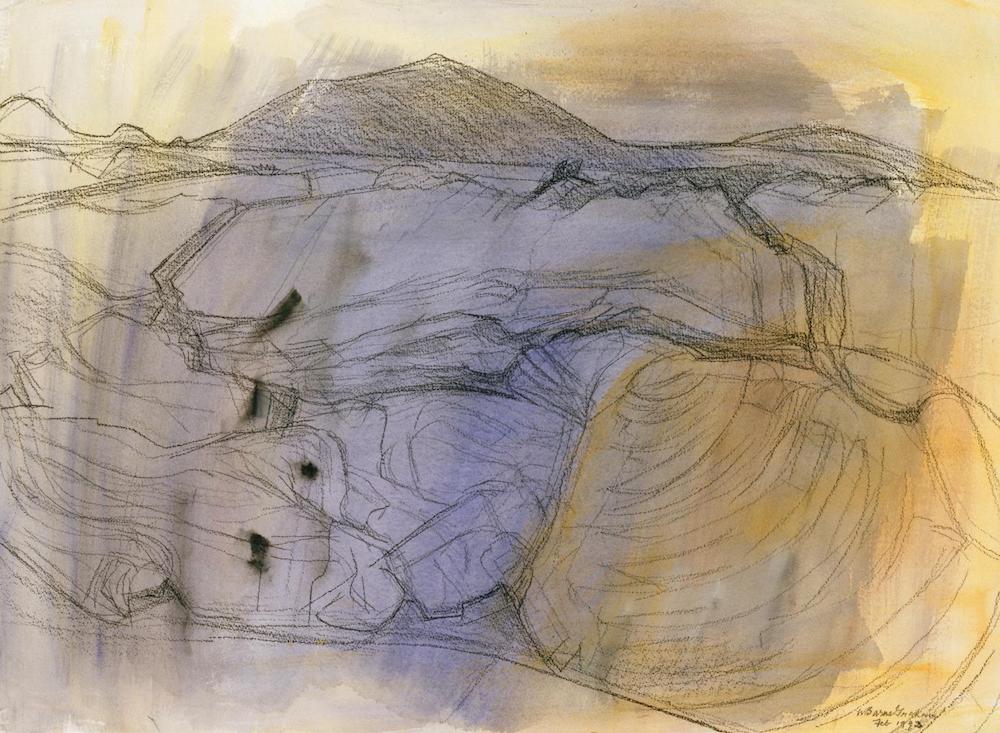
— There’s a story that my grandfather used to tell me. He had been a sailor – on trawlers first, off . . . Brittany, battling the . . . Atlantic. Though he didn’t like fish. Then on cargo vessels all over the world; then finally, unhappily, on a ferry between . . . a ferry on the Channel.
— La sleeve.
— The sleeve, yes. He liked being on the sea, but he loved to be on the ocean. He thought the ocean was the stuff of the planet itself, and he was in awe of it, and it nourished him. Land was small and dreary and cut up. And he seemed genuinely to not understand how anybody could accept that a border was a real thing. It was an absurdity. He railed against borders. Stupid doodles on the world. Anyway, the story he told me was about a border. He was helping some people cross it. The details were always vague. A small boat, a foggy becalmed sea, a group of frightened refugees or fugitives approaching the coast in complete silence, waiting for the sound of a bell to guide them to safety. My grandfather was tense, standing up in the prow, not able to see the hand at the end of his outstretched arm. There was no bell. Someone whimpered and was quietened. A cough was smothered in gloved hands. The distant shush of a rippled beach. And then a single low tone, far off but clear. A bell. My grandfather turned his head and held his breath and just as his lungs began to fail it rang again. They made for it, navigating by ear, slightly to port, straight ahead. The encouraging bell. And then. Then there was a second bell. Another bell, a different one. A single low tone, far off but clear, slightly different to the first. A different direction. A different bell. Oars were lifted and the sailors huddled and conferred. My grandfather was new to this, but the others weren’t, and they were in no doubt. They turned around. They headed back the way they’d come, carefully, slowly, grimly, shrugging off the increasingly desperate pleadings of their passengers. Not tonight. Another night.
She takes a sip of her wine.
— We are, my grandfather told me, surrounded by traps.
— Which grandfather was this?
— I haven’t yet decided.
— A different one.
— A different one.
— Can they navigate by sound? In the darkness? Ships? Boats? Does sound not turn around on them? Would they not use lights?
She puts her fingers on the base of her glass and looks up over the rows of bottles to the patch of empty wall beneath the ceiling. Then she turns and looks at him.
— Foghorns, Yves.
He considers that.
— Fair enough. Foghorns. Yes. I still think. It wouldn’t suffer by the replacement of the bell. Beacons maybe. Lights in the darkness, just as thrilling.
— No. I like the bell. I like the sound of the bell. — Fair enough.
— We are surrounded by traps. Appealing little noises in the darkness. They sound like signals. They draw us in.
— Very good.
They are at the bar in The Arms. They sit at the end, at the wall that divides the front bar from the back, they being in the front, next to the archway, perched on stools, Yves leaning against the panelling, looking at the side of Anna’s head, and past it to the rest of the front bar, which is almost empty, except for people. Yves is the same man that Stan calls Stoker and Gary calls Yan, or Yanko. Anna is the woman Maria thinks of as Mrs Grant. She is Anna Grant.
— Who did you meet? asks Yves.
— No one.
— I met a man from Colombia.
— Was he an interesting man?
— He was. He was interesting. Melancholy. I told him the story of the wretched woman and he told me a story of a mountain.
— Which wretched woman?
— The woman in the wall.
— I don’t know that.
— Which first?
She takes a sip of her wine. Her bracelet slips along her wrist.
— The mountain.
— There is a mountain in Colombia. There is a sparrow there, a small bird, some sort of small bird, which is called the Heart of Jesus. But in Spanish. What is that in Spanish?
— Le coeur de
— Anna that’s French.
— Oh Spanish. I’ll have to look. She takes out her phone.
— Go on anyway, she says.
— This bird is peculiar to the region, or this variety of this bird in any case, is peculiar to the region. Certainly in its behaviour it is peculiar to the region. When the Spanish arrived and one or some of them got it in their heads to climb the mountain, they would find the little corpses of this bird scattered near the summit, and the locals, the indigenous people, told them that
— El corazon de Jesus.
— That’s it. But the local people, the indigenous people had another name for it of course in their own language, but anyway. They told the Spanish that this bird died because it kept trying to fly to the sun, and it would fly too high, and its heart would burst, and down it would fall, dead. And that is why there were so many little bird corpses on the summit, and near the summit, and the Spanish named the bird El cortisone
— El corazon de Jesus.
— That’s it. And the scientific amongst them wondered if a bird could get high enough into thin air in order to kill itself, and apparently there were papers written and philosophical Spanish gentlemen who pondered this a long time, this question, and wondered what it could mean, and wondered too if the echoes of the story of the Greek boy
— Icarus.
— That one. They wondered how these local, to their minds, savages, could have heard that story, and wondered if the Greeks had been there, and wondered if perhaps all the world’s people came from the same original story, but of course that would have been a dangerous thought to have, given that they were killing these beautiful people left right and centre for their gold and with the declared justification that they were not worth a damn one way or another, and do you know this isn’t even the start of the story, this is all just preamble Anna, I haven’t even got to the start of it yet.
— Go on then.
— But of course the locals were well ahead of them anyway because to their way of thinking there wasn’t a multitude of these Hearts of Jesus – what would that be?
She touched her phone a little.
— Los corazones. De Jesus.
— That’s lovely. Well to their way of thinking there was only one. Only one corazone. And the many dead birds were just the same dead bird, stuck. Stuck in a loop. Doing the same thing again and again. Never learning its lesson. Up it flies for the sun, and it falls down dead and off it goes again. Like that other Greek boy
— Sisyphus. Are we still preambling?
— And there was something about the way these people, very specifically indigenous, very specific to that area – he told me the name but I can’t remember, but these are not your Mayans, who were just up the way a little, or your Incas, Anna, or any of the more famous, the Aztecs, the more famous civilisations of those parts, these are a different band of people, gathered around this mountain with the dead birds at the top.
He takes a sip of his beer.
— And this now is the story.
— Well thank god Yves, mon dieu.
He laughs at her.
— Very good. Now this mountain that they were living around and at the foot of, and a little bit up the sides of et cetera, the Spanish asked them the name of it, according to them. And every time they asked they got a different answer. Or probably what it was was that each time a different one of them asked they got a different answer, and it was only when they compared notes as it were, when they met at the end of the day and one would say to the other, well now, the locals showed me up The Ear today, and another would ask what The Ear was, and he would realise that it was the mountain that he had been told, by the very same locals, was known as The Storm, and a third would pipe up saying that the locals had told him that it was called The Bulldog, and another The Impossible and another The Burp of the Sheep, and another God’s Thumb, and so on and so on.
— The Burp of the Sheep.
— And of course these Spanish, these terrible colonialists, these awful men, were furious, thinking that they’d been lied to left right and centre, and they went into the villages and raised a terror demanding to know what the locals called this mountain.
— Did they kill?
— Over this? No I don’t think so. The man just said they were furious. You know the way violent men are constantly furious. Out of shame. That sort of thing. Assuming deceit. They probably knocked people about a bit. The Met on Rye Lane on a Sunday morning. Bloody, boisterous. You know. Seeing lies left right and centre. They kicked up an awful fuss anyway.
— You need to work on this bit.
— I do. In any case, it emerged of course that no one was lying to them. That they had been told the truth each time they’d asked.
He pauses, and regards Anna. She purses her lips. She sits on the barstool with her legs crossed, her hands lying loosely in her lap. She wears a soft black leather jacket over a thinly striped top, dark red trousers, sandals. A full-looking bag lies crumpled at her feet as if fallen from a great height. Her hair is tied back in a loose ponytail, strands of it falling over her face, which is very lightly made up.
— I think it’s obvious, she says.
— Is it?
— The mountain has many names. She eyed him almost nervously, and smiled then.
— You are disappointed.
— No, no, it’s obvious of course. If they’re not lying . . . well then.
He looks around the bar. Has a sip of his drink.
— Go on then.
— No it’s all right.
— Oh for god’s sake Yves, tell me how it ends.
— The mountain had all those names. All of them. And more. Hundreds of different names. It had a different name depending on where you were when you saw it. A matter of perspective Anna. In one village it looked a little like a bulldog. In another it looked like an ear. If you were climbing it from this angle it might be Boulder Mountain. From that angle it might be Goat Mountain. If you’re coming down it on this path it’s Rushing Mountain. On that path it’s Pigtail Mountain. Et cetera.
— That’s good.
— He told it much better.
— Your Colombian?
Yves drinks the last of his beer, his eyes on Anna over the rim of the glass. She looks into the silence he has left and finds his eyes and laughs. And he finishes his drink and laughs too.
— One bird, many mountains, says Anna.
A Shock is published by Picador 24th June
